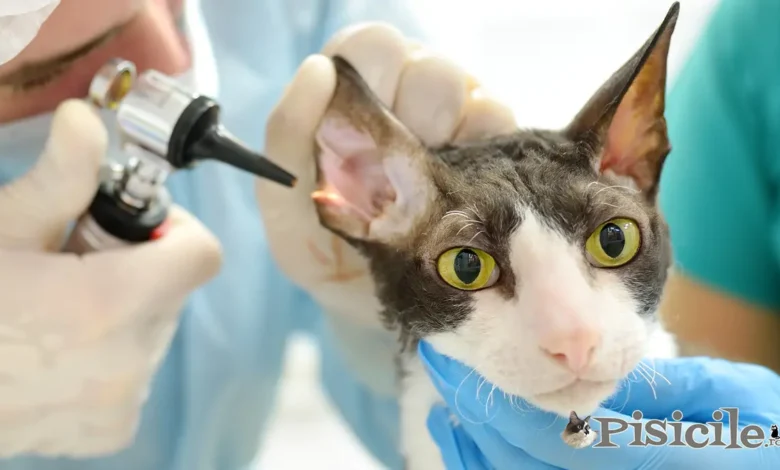
Often, chronic otitis in cats and parasitic otitis are confused, because in both, the most visible symptoms are excessive scratching of the ears and the discomfort and agitation of the cat.
Parasitic otitis in cats is caused by the installation of a parasite called: Otodectes Cynotis (Auricular Scabies, as it is known), while chronic otitis is a condition that can have several factors. From mites that can invade the cat's ear and allow a favorable environment for invasive bacteria to develop, to allergies, trauma, foreign bodies or hormonal abnormalities, these can all be causes of chronic otitis in cats.
Subject
What is chronic otitis in cats and what are the symptoms
Chronic otitis is a progressive disease, long lasting, which it creates pain, itch, external lesions of the ear FROM the cause of excessive scratching, discomfort and which, over time, if not treated properly, can lead to a rupture of the cat's eardrum or permanent narrowing of the ear canal. Chronic otitis is one of the diseases of cats that requires long-term treatment, with no guarantee that it will not return.
Chronic otitis can be classified according to the affected site, as follows:
Otitis externa, when it is present in the upper part, in the external ear canal. It is very visible and most of the time also the easiest to treat.
Otitis media, when it is found in the middle part of the ear canal.
Internal otitis, when present in the inner ear canal. Place rather difficult to access for outpatient treatment.
Leaking ear fluid, excessive and repeated scratching of the ear, and irritated lining of the ear canal can be the first signs of otitis. The symptoms of chronic otitis media are varied, but they can all indicate an ear problem. Otic fluid discharge (with a foul smell in some cases), the cat will constantly shake its head and try to scratch at the affected ear, redness or irritation of the ear canal, loss of hair around the ear from repeated scratching and agitation are the main symptoms of chronic otitis in cats.
Diagnosis of chronic otitis in cats
As I said above, the causes that can cause chronic otitis are multiple, and the veterinarian will have to determine exactly the factors that led to the onset of the condition. In general, chronic otitis is caused by bacteria that settle in the cat's ear due to another factor. From trauma to the ear resulting in a wound, thus favoring a favorable environment for the establishment of bacteria, allergies and mites that have inflamed the ear, to hereditary transmission, can be causes of the appearance of chronic otitis in a cat.
The veterinarian will have the mission to establish what is the cause of the otitis and to discover the microorganisms that have settled in the ear. In order to identify the microorganisms, both microscopic analysis and laboratory tests of the cultures taken from the cat's ear will be done.
Once the contributing factor and microorganisms are identified, the treatment to be followed will be decided.
Treatment of chronic otitis in cats
Treatment depends on the trigger, how badly the cat's ear was affected and the type of microorganisms present in the inflammation/infection. In treating the effects, most of the time, Otto Cleans cerumenolytic solution, dexamethasone (synthetic glucocorticoid) for inflammation and injectable ivermectin for parasite control will be recommended to clean the cat's ear. Cleaning the cat's ear will be done daily, for a minimum of 7 days, with repetition or extension if the problems recur.
The treatment for the trigger will be clearly established by the veterinarian. If chronic otitis has set in as a result of allergies, treatment will be done with anti-allergens specific to the allergy developed by cats. Likewise if the trigger is hormonal in nature. The cat will receive hormone injections and a hormone control treatment plan will be established.
How to properly clean the cat's ear
Because we encountered this problem with Soricel, we tell you from the very beginning that it is very important that the cat is as gentle as possible. And no matter how gentle she is, she won't easily tolerate having all kinds of objects and substances through her ear. In the case of aggressive cats, a good ear cleaning can only be done under anesthesia.
If you are the lucky owner of a more docile cat, feel free to clean her ears twice a day until all the mess is completely removed.
With the shape of the letter "L", there is no danger of using ear sticks. You won't be able to get them to the bottom, but be careful because you can push the dirt into the drain and then it will be very difficult to remove. It is best to put a few drops of the cleaning solution before using the stick and massage the cat's ear at the base for 30 seconds. This way, the dirt will loosen and rise to the surface of the channel. Cleansing discs are another solution for cleaning the ear, but most of the time it is difficult to penetrate deeply with them.
To clean the cat's ear, use only the solutions indicated by the veterinarian. It is very important!
Here's what some used sticks look like after cleaning a single ear of Soricel...
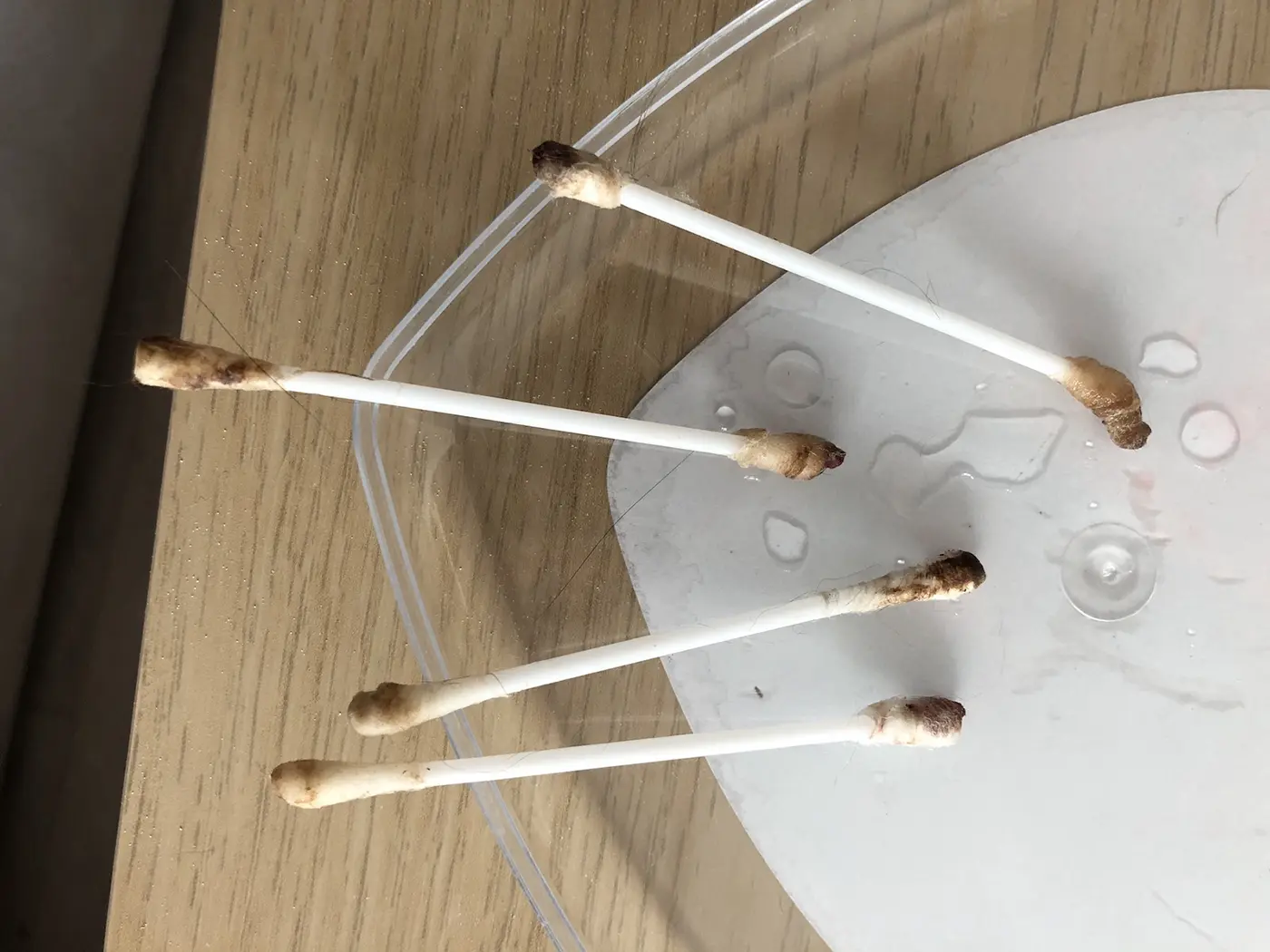
The dirt collected on the sticks indicates that it has been affected in both the middle and the lower part of the ear canal.
Prevention of chronic otitis
Because the triggers are so many, there is no vaccine or treatment to prevent chronic otitis media. The best prevention method is to check the cat's ear weekly, and if it is found that one of the above symptoms has appeared, clean the ear or go to the vet.
Chronic otitis media is present in over 50% of cats. This cat ear condition has a number of triggers and can lead to the degradation of your cat's quality of life. What is chronic otitis, what are the triggers, how to clean the cat's ear and what treatment is best for this condition.
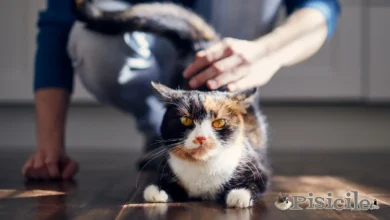
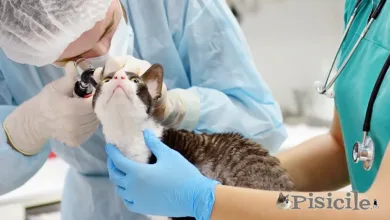
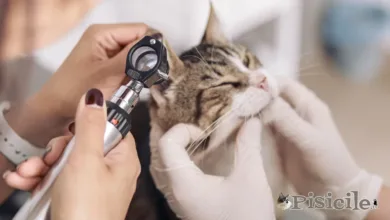
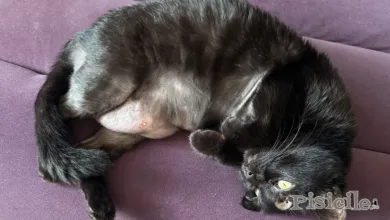
One Comment